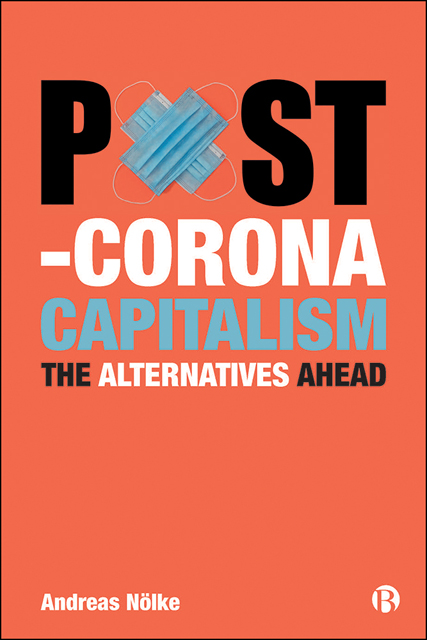Book contents
- Frontmatter
- Dedication
- Contents
- List of Abbreviations
- Acknowledgements
- Preface
- 1 Introduction: Confronting a Multidimensional Crisis of Capitalism
- Part I Capitalism and Society
- Part II Domestic Institutions of Capitalism on the Demand Side
- Part III Domestic Institutions of Capitalism on the Supply Side
- Part IV The International Institutions of Capitalism
- Part V Anthropocene Capitalism
- Part VI Geo-economic Shifts in Global Capitalism
- Part VII Ideologies in Contemporary Capitalism
- References
- Index
25 - Degrowth: Necessity or Fantasy?
Published online by Cambridge University Press: 13 October 2022
- Frontmatter
- Dedication
- Contents
- List of Abbreviations
- Acknowledgements
- Preface
- 1 Introduction: Confronting a Multidimensional Crisis of Capitalism
- Part I Capitalism and Society
- Part II Domestic Institutions of Capitalism on the Demand Side
- Part III Domestic Institutions of Capitalism on the Supply Side
- Part IV The International Institutions of Capitalism
- Part V Anthropocene Capitalism
- Part VI Geo-economic Shifts in Global Capitalism
- Part VII Ideologies in Contemporary Capitalism
- References
- Index
Summary
Many people see the outbreak of the coronavirus pandemic as a more or less necessary consequence of capitalism and its inherent growth imperative. Correspondingly, they perceive the pandemic not only as an urgent warning sign, but also as a unique opportunity to overcome the focus on economic growth. This is assumed to be even more pressing, given the climate crisis and the close linkage between economic growth and carbon dioxide emission (see Chapter 24). Is degrowth a realistic perspective or is it a fantasy that cannot be realized, due to economic or political reasons?
Degrowth in debates of International Political Economy
Traditionally, discussions about degrowth did not play a major role in IPE debates. However, during the last decades IPE scholars have started to engage with debates in Environmental Studies between ‘technocentric’ and ‘ecocentric’ approaches to sustainability (O’Brien and Williams, 2016: 246–9). Both perspectives agree on the urgent need to protect the environment, but they disagree on the relative weight of this objective against other objectives. From a technocentric perspective, the main function of the economy is to satisfy human needs. In an ecocentric perspective, human needs are balanced with the concerns of all living organisms. A technocentric perspective assumes that economic growth is possible without ecological degradation in principle, even if it has been tightly coupled so far. Crucial instruments would be taxes on carbon dioxide emissions and technological innovations. An ecocentric perspective is deeply sceptical of modern industrial growth and assumes that it is incompatible with ecological preservation.
The ‘degrowth’ concept is a particularly prominent articulation of ecocentric approaches. The basic assumption of the degrowth movement is that, sooner or later, the climate change crisis will lead to natural disaster, which entails much loss of human life. Therefore, human societies will not have a choice, but to take drastic measures to lower their economic footprint and to abandon their belief in the feasibility of endless growth, in favour of a ‘steady-state economy’ and a more frugal lifestyle. Most contemporary degrowth academics and activists share two beliefs: first, that it is impossible to have economic growth without environmental destruction; and second, that the necessary transformation has to be capitalism-critical, based on female emancipation, non-violent and deeply democratic (Eversberg and Schmelzer, 2018: 251–2).
- Type
- Chapter
- Information
- Post-Corona CapitalismThe Alternatives Ahead, pp. 156 - 160Publisher: Bristol University PressPrint publication year: 2022



